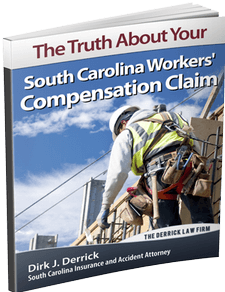Neurogenic TOS
n approximately 90 percent of TOS cases, the brachial plexus that leads from the neck down to the arm is compressed, resulting in weakness, fatigue, tingling, and pain in the arm and shoulder.
Vascular TOS
Venous and arterial TOS can sometimes occur simultaneously.
The symptoms of TOS can also include reduced blood circulation and painful lumps in the collarbone area. Treatment usually involves a combination of rest, medication (pills or injections), physical therapy, and pain management. In some cases, surgery might be necessary to cut through muscles or remove a cervical rib that’s compressing your blood vessels.
If you ignore your symptoms and try to continue carrying out your job duties without treatment, you could suffer permanent nerve damage that might leave you unable to work at all in the future.
What to Do if You Experience TOS Symptoms
If you have a job that involves the kind of repetitive motions described above and become aware of one or more TOS symptoms, you should notify your supervisor immediately. If your employer does not file a claim for you with the South Carolina Workers’ Compensation Commission (SCWCC), you can do so yourself with Form 50, which is available on the SCWCC website. After filing your claim, you should visit a doctor certified by your employer’s insurance company (not your own doctor). Follow that doctor’s orders conscientiously, don’t miss any appointments, take all medication as prescribed, and keep a detailed daily journal of your treatment and recovery.
It's important to remember that your employer’s insurer generally certifies doctors who will diagnose you conservatively to save money for the insurance company. Doctors who cost the company money by diagnosing your injury as serious and expensive to treat might not get many more referrals from the insurer. You should contact a workers’ comp attorney immediately if:
- You feel the certified doctor has not properly diagnosed or treated your TOS
- You don’t feel that your condition is improving
- The insurance company is slow to approve necessary medical treatments
- Your claim is denied
- You’re forced back to work before you’re ready
- Any job restrictions given to you by the doctor are not honored
- Your boss retaliates against you in any way for filing your claim
If your claim is denied on the basis of the report made by the insurance company’s chosen doctor, your lawyer can arrange for an independent medical exam with a different doctor and use that doctor’s report in a hearing before the SCWCC. If your claim is still denied, your attorney can appeal your claim to the SC Court of Appeals or the SC Supreme Court.
Workers’ Comp Exemptions and Exceptions
Nearly every SC employer with four or more employees is required by law to carry workers’ comp insurance, but some employers are exempt: businesses with an annual payroll of less than $3,000, county or state fair associations, railroads, and agricultural businesses. If your employer is not among the exempt businesses above, you’re probably eligible for workers’ comp benefits if you’re a salaried employee, but there are some exceptions. Those not covered by workers’ comp include federal employees of the state, independent contractors, casual employees working on an as-needed basis, sole proprietors or business partners, commissioned real estate agents working for brokers, and members of limited liability corporations (LLCs). If you’re not eligible for workers’ comp or your employer is exempt, a workers’ comp attorney can help you explore other sources of compensation for your work-related TOS, including a possible lawsuit against your employer.
|
Related Links: |

 cover all your
cover all your 


